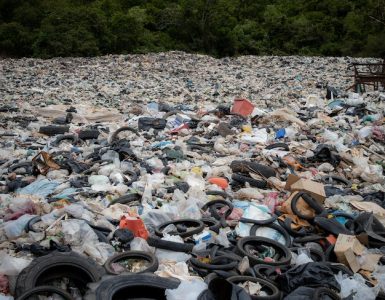The Vice President of India, Shri Jagdeep Dhankhar, chaired the valedictory session of the National Conference on Environment 2025 today at Vigyan Bhawan, New Delhi.
Addressing the valedictory session, Vice President Mr Jagdeep Dhankhar pointed out that neither the planet is exclusive to us nor are we the owners of it. He emphasized that Developed nations must transcend political boundaries in environmental thinking and urged a collective commitment to live in harmony with nature and protect the environment.
The two-day National Conference on Environment organised by the National Green Tribunal and inaugurated by the President of India, Droupadi Murmu, yesterday. She emphasised that balancing a clean environment and modern development is both an opportunity and a challenge.
Opening day saw two technical sessions, the first on Air Quality Monitoring and Management, and the second on Water Quality Management and River Rejuvenation.
The second day’s proceedings began with Technical Session III, focusing on “Forest and Biodiversity Conservation“, chaired by Justice Anand Pathak, Judge of Madhya Pradesh High Court.
Experts and policymakers deliberated on the impact of human intervention on forests and biodiversity, highlighting legal and policy frameworks necessary for conservation. Justice Anand Pathak of the Madhya Pradesh High Court stated that every citizen has a duty to promote the environment by planting the right trees in the right places.
He proposed a range of ideas such as transforming minor penalties into plantation initiatives, corporate climate responsibility, creating a National Carbon Credit Bank and establishing Sovereign Funds for conserving biodiversity. It is a need of the hour to shift from human rights to planetary rights and nurturing the thought of environmental responsibility, he added.
The Technical Session IV, titled “Reflections and Key Takeaways“, provided a comprehensive review of the discussions held in technical sessions over the two days.
Chaired by Justice P. S. Narsimha, Judge, Supreme Court of India, and co-chaired by Justice Arun Kumar Tyagi, Judicial Member, NGT, the session summarized key environmental concerns and proposed a roadmap for legal and policy advancements.
Justice P.S. Narsimha emphasized the effective execution and implementation of policies. Focusing upon the institutional integrity, he proposed to strengthen and empower the regulatory bodies to function effectively at the grassroots level.
The event was also marked by the felicitation of universities and students for their outstanding contributions towards environmental conservation and sustainable practices. This initiative was aimed at motivating young minds to continue their efforts in ensuring a cleaner and greener future.
In his address, Vice President Jagdeep Dhankhar stated that, “ Long before sustainability became a global buzzword, much long before….India lived it for centuries, where every Banyan tree was a temple, every river a goddess and best an unknown concept in a civilisation that worshipped secularity. Our Vedic literature is a goldmine for nurturing Mother Earth and propagating harmony between man and nature.”
India’s DNA carries the only vaccine against ecological collapse, conspicuous consumption. We only have to read what is there in our gold mine. Environmental depredation, if we see the cause of it, is brought about on the planet only by one species amongst living beings.
We are paying a heavy price for reckless exploitation of resources and thoughtless consumption, conspicuous and lacking empathy.
Both ecological extension and conservation ethics advocate harmonious human-nature relationships and are so easy to bring about. It doesn’t call for anything but a positive mindset towards life, we have to focus on environmental preservation and prudent resource stewardship for generational sustainability.
Global environmental challenges necessitate cross-border cooperation and innovative strategies that simultaneously advance ecological sustainability and economic development.
No individual, no group, no nation can by itself resolve this issue. It has to be done by one and all on the planet. There will have to be convergence.
Developed nations must transcend political boundaries, adopting environmental thinking and models where planetary health becomes foundational to human prosperity and well-being.
Highlighting the interconnectedness of NGT with law, science and ethics, Shri Dhankhar stated, “ The way I look at NGT, N for nurturing, G for green and T for tomorrow. NGT for me is nurturing green for tomorrow. This is not just wordplay. It is a vision of an institution that connects law, science and ethics to transform our relationship with nature. Let us grow from our very roots, wield cutting-edge tools and uphold climate justice with unwavering resolve.”
“Let peace prevail in the sky and space. Let peace reign and radiate in earth, in water and in all plants. Let peace prevail everywhere”, he added.






Add comment